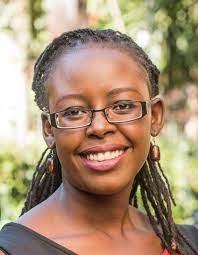At a meeting between representatives of the Leiden-Delft-Erasmus universities and representatives of universities, civil society organisations and governments from Kenya, Tanzania, Uganda and Burundi, it was decided to develop a Leiden-Delft-Erasmus East Africa Research Network (LEARN).
The theme of the visit to Nairobi was to explore closer cooperation. A foundation has been in place between Leiden-Delft-Erasmus and East Africa for some time, including through Leiden Global, Delft Global Initiative, Erasmus University's ISS and the joint Leiden-Delft-Erasmus Centre for Frugal Innovation.
 One of the hubs of the Leiden-Delft-Erasmus International Centre for Frugal Innovation is located in the Kenyan capital Nairobi and part of the Nuvoni Centre for Innovation Research. The latter research centre is led by Dr Elsie Onsongo and focuses on energy transition, urban development and technology management.
One of the hubs of the Leiden-Delft-Erasmus International Centre for Frugal Innovation is located in the Kenyan capital Nairobi and part of the Nuvoni Centre for Innovation Research. The latter research centre is led by Dr Elsie Onsongo and focuses on energy transition, urban development and technology management.
From 15 to 17 November, Nuvoni and Leiden-Delft-Erasmus organised a seminar in Nairobi to explore broadening and strengthening mutual cooperation.
Urban transformations
During the three-day seminar, scientists and representatives of civil society and government organisations talked to each other about what scientific research can contribute to the necessary urban transformations in the region. Invited by Leiden-Delft-Erasmus dean professor Wim van den Doel, they focused on the year 2050.
Van den Doel: 'Although the future is uncertain, it is clear that more and more people will live in cities. Those cities will be supplied with energy in a different way, and to keep it liveable, biodiversity will have to be protected and enhanced. As a result, by 2050, cities are likely to be greener than today, also to adapt to climate change.'
There will be several transitions, which need to be understood and shaped.
Energy transition, climate change and nature conservation are not the only foreseeable changes in cities. Van den Doel: 'Due to the digital revolution, society and governance will have changed drastically by 2050, including in cities. So there will be several transitions, which need to be understood and shaped. This will require groups from different backgrounds to engage with each other.'
Leaders of the world in 2050
Seminar participants concluded that deepening cooperation between the Leiden-Delft-Erasmus universities and partners in East Africa could bring benefits to all parties. This pointed not only to the need to connect science and civil society organisations and governments, but also to cooperate in the field of education. 'A logical outcome' according to Van den Doel because, after all, 'the leaders of the world in 2050 are now sitting in the lecture halls.'
Policymakers can make more evidence-based decisions through research'.
Samuel Kiriro, the director of the Nairobi based Ghetto Foundation, thinks scientific research is extremely important to help the people of East Africa's cities build a more just society: 'Research gives people more information about and understanding of the world they live in so they can make better decisions. Research also allows their policymakers to make more evidence-based decisions'.
Professor Shuaib Lwasa of the ISS points out that for the latter, scientists should also produce publications summarising science. Through syntheses, politicians and policymakers can be better informed than by scientific articles. And preferably, these syntheses are results of international cooperation.
Leiden-Delft-Erasmus East Africa Research Network
It was decided to form the Leiden-Delft-Erasmus East Africa Research Network, or 'LEARN', with the Nuvoni research institute as its centre. Leiden-Delft-Erasmus will support the network from the Leiden-Delft-Erasmus Global programme. This will also develop educational activities, such as thesis labs in which master's students from Leiden-Delft-Erasmus and East African universities will work together on projects and write their theses within that framework.
The Leiden-Delft-Erasmus East Africa Research Network will be useful for all participants.'
 Nuvoni director Elsie Onsongo is looking forward to the intensified cooperation: 'The Leiden-Delft-Erasmus East Africa Research Network will be useful for all participants. And great to start with student research: it often produces original results within a relatively short period of time'.
Nuvoni director Elsie Onsongo is looking forward to the intensified cooperation: 'The Leiden-Delft-Erasmus East Africa Research Network will be useful for all participants. And great to start with student research: it often produces original results within a relatively short period of time'.
